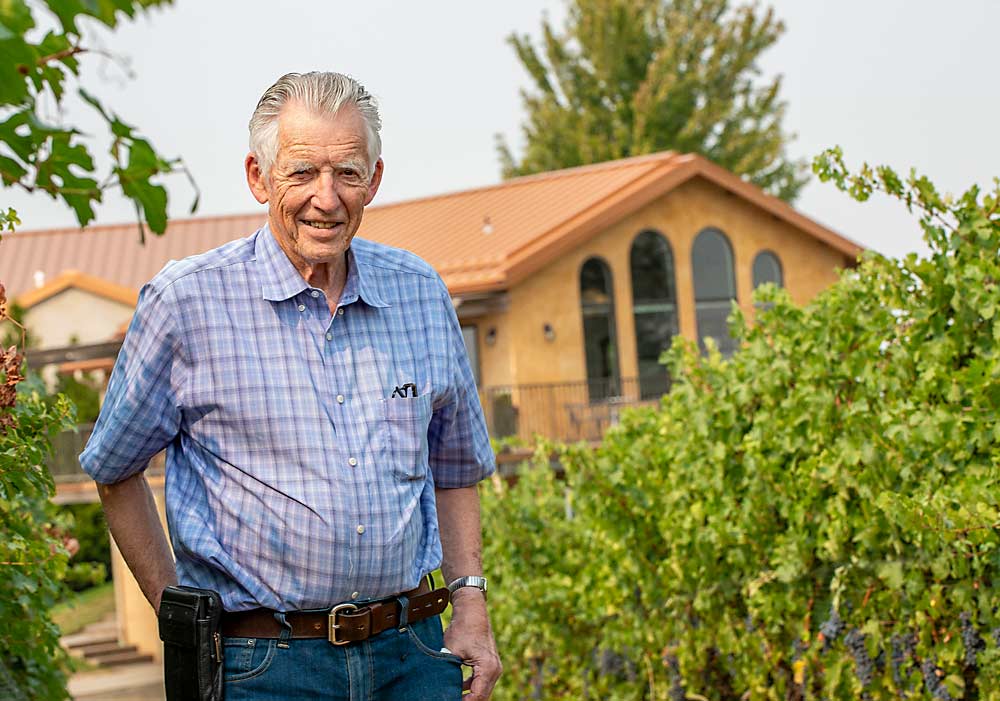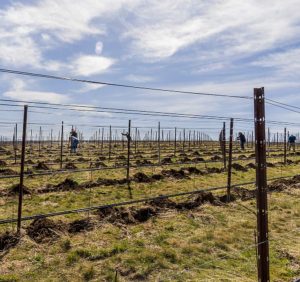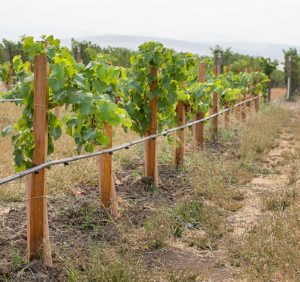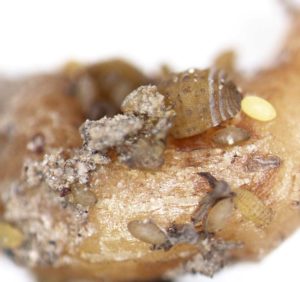
For decades, Washington’s wine region saw its own-rooted vineyards as a point of pride and viticultural advantage. However, the recent recognition that phylloxera is more widespread in the state than previously thought complicates that narrative.
It’s also motivating many in the Walla Walla region to begin planting on rootstocks. According to Norm McKibben, one of the founders of the Walla Walla wine region, the industry would do well to consider the opportunities afforded by replanting, in addition to the challenges.
“We’re taking a hard look at the vines I was in charge of putting in 20-some years ago,” said McKibben, a partner in Pepper Bridge Winery, Amavi Cellars, Seven Hills Vineyard and SeVein Vineyards. “We’ve got to look at this as an opportunity to do better than we did before.”
Constant improvement is the story of his career in wine — his second career after decades as a construction engineer. McKibben likes to talk about the first vineyard he planted on an old wheat farm in the late 1980s, when Walla Walla was home to a handful of wineries that largely sourced their grapes from other parts of the state. It was a disaster in both the location and the cultivar choice, he said, and quite the learning experience.
Both the Walla Walla Valley AVA and the larger Washington wine industry have come a long way since then — understanding the best sites to farm, the right cultivars and clones for those sites, and the viticultural practices that deliver premium quality. Phylloxera-resistant rootstocks will only add another tool to continue that improvement, he said.
McKibben himself planted hundreds of acres and many of the best-known vineyards in the region. Now, he’s not sentimental about seeing those vines scheduled for replanting over the next decade.
“I care about the vineyards and their quality, not the vines,” he said. “There’s no question in my mind, and I’ve been farming for 30 years, that we’ll be better off than we were before.”
Part of that certainty comes from experience. His vineyards include rootstock trials led by Jean-Francois Pellet, his partner and head winemaker at Pepper Bridge and Amavi.
“Jean-Francois has always said it’s a matter of when, not if,” that phylloxera would become a problem for Washington, McKibben recalled. Over a decade ago, they decided to try out some rootstocks. Yes, they had to fine-tune some vineyard practices, but now every winery that shares ownership in the vineyard wants those grapes, he said.
Beyond the rootstocks themselves, the expected replanting also provides opportunity to improve clone selection and align cultivar choice with today’s market. Growers and winemakers know so much more now about which clones perform well in Washington than when he was first planting, he said.
“Yes, it’s not minor in what it’s going to cost us,” he said. But “this is an opportunity to put in the grapes that people want.”
—by Kate Prengaman









Leave A Comment